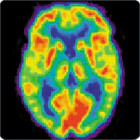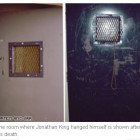
Teen Brains and Juvenile Justice
|
A series of Supreme Court decisions is changing the direction of juvenile justice. A report in the American Bar Association Journal digs into the impact of the Graham v. Florida ruling last May, and Roper v. Simmons from five years ago. Graham bars life-without-parole sentences for teens convicted of anything short of homicide. Roper bans the death penalty for children. Both decisions were influenced by new research in developmental psychology and neuroscience that reveals how kids’ brains are different from adults’ brains when it comes to impulse control, decision-making and risk-taking. Researchers also maintain teenagers are more capable of long-term change than are adults. Reporter Bryan Stevenson talks with researchers, including Dr. Laurence Steinberg at Temple University, who "likens the teenage brain to a car with a powerful gas pedal and weak brakes. While the gas pedal responsible for things like emotional arousal and susceptibility to peer pressure is fully developed, the brakes that permit long-term thinking and resistance to peer pressure need work.”
Not everyone is on board.


